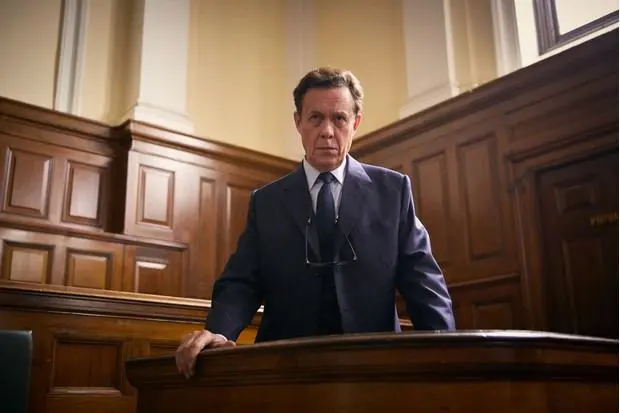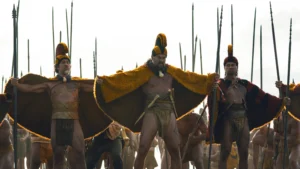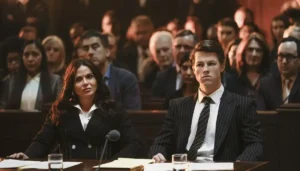Summary
A Very English Scandal closes out masterfully, with career-best performances from Hugh Grant and Ben Whishaw as Jeremy Thorpe faces justice for his conspiracy to murder his secret lover.
I’ve heard some complaints about the tone of the A Very English Scandal finale being wrong, and indeed that all three episodes of the BBC’s dramatization of the Jeremy Thorpe affair have been a bit too daft to be taken seriously. This is, of course, nonsense. Serious matters don’t have to be treated drily all the time – we have quite enough of that. And besides, to be able to laugh as often as you seethe, and to reel in shocked, smiling awe at men of the establishment getting away with their abuses of power, strikes me as the most English thing imaginable.
When we left A Very English Scandal, it was on a lonely, rainy roadside where Rinka the Great Dane has been shot by Neil from The Inbetweeners. It’s really no surprise that people think this is made up. As the dog is bundled into the boot of a police car and justice closes in on Jeremy, letters begin to emerge from him to Scott, and the political scandal makes the papers, to be read over breakfast my Thorpe’s second wife, Marion (Monica Dolan).
A lot has been made of Hugh Grant’s performance. It’s a career-best effort, it must be said, and never has this been more obvious that the bit in the A Very English Scandal finale when he tries to explain to Marion, after resigning from the party leadership, how he dabbled with men before marrying. “Dabbled.” How wonderful. As we’ve repeatedly established, Russell T Davies really didn’t make all this up, but I imagine he would have had a lot of fun doing so.

National disgrace, arrest and a charge for conspiracy to murder doesn’t even stop Thorpe from standing for re-election; such is the unflappability of old-fashioned Englishness. He loses, of course, to the Tory candidate – this is the 1979 election, when Maggie took the reins. Suddenly a party leader being secretly gay doesn’t seem so bad, but then again I’m from the north, so it’s a sore spot for my ilk.
The recreation of the trial at the Old Bailey – all of it – was splendid. I’m sure there was some artistic license taken here, but I don’t mind. Nor should you. Ben Whishaw got his moment to take a stand against the ghastly prejudice and elitism, to revel in the tittering of the public gallery. What a performance. What a television show, really. Few have been – or will be – better this year.
If you’re wondering, he gets off. Of course he does. What’s most extraordinary about this, though, is that it’s presented more or less how it happened, at least as I understand it. Simple, smug nonsense, delivered confidently and passionately, as Oxbridge chums exchange notes and poor Norman Scott, still no National Insurance card, looks up at his landlady friend for courage. Well, perhaps that last bit didn’t happen quite that way. But I like to believe it did.




